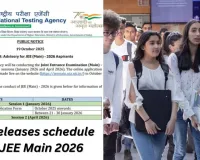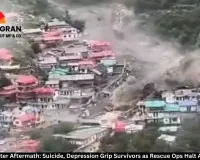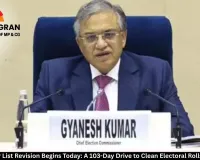Kerala declared India’s first state free from extreme poverty: 64,006 families lifted through tailored micro-plans
Digital Desk

Kerala Chief Minister Pinarayi Vijayan on Saturday announced in the Assembly that the state has officially become India’s first to eliminate extreme poverty.
The declaration marks the successful completion of the Extreme Poverty Alleviation Project (EPAP), launched by the Left Democratic Front (LDF) government in 2021. Under the initiative, 64,006 families living in severe poverty were identified and subsequently uplifted through a targeted, data-driven strategy over the past four years.
However, the announcement triggered a political uproar, with the Congress-led United Democratic Front (UDF) dismissing the government’s claim as “fraudulent.” Opposition MLAs staged a walkout from the special session, accusing the CM of violating assembly procedures.
Defending his statement, Vijayan said, “We only promise what we can deliver — and we have delivered what we promised.”
A model for inclusive development
According to the government, Kerala’s success represents a milestone in social welfare governance, built on a foundation of robust data collection, community participation, and customised support plans for the most vulnerable households.
The initiative builds on Kerala’s long-standing strengths in education, healthcare, and progressive governance, making the state a global model for inclusive growth.
How Kerala identified the most vulnerable
A massive grassroots survey was carried out by the Kerala Institute of Local Administration (KILA), involving four lakh enumerators. Families were assessed across four key parameters — food, health, income, and housing — aligned with the UN Sustainable Development Goals.
Survey teams discovered people living in extreme isolation — from individuals surviving alone in boats in Anchuthengu to those without shelter on the streets.
Through a multi-stage process, 64,006 families (1,03,099 individuals) were identified as living in extreme poverty, including 43,850 single-member households, many of whom were later moved to safe housing.
Micro-plans: A family-specific path out of poverty
Unlike conventional schemes, EPAP designed individualised micro-plans for each household — ultimately 59,277 customised plans — addressing needs ranging from livelihood generation and healthcare to housing, food security, and even organ transplants (seven successful cases were reported).
The programme ensured:
-
Essential documents for 21,263 individuals
-
New houses for 3,913 families and land with homes for 1,338
-
House repairs for 5,651 families
-
Livelihood support for 4,394 families
-
Palliative care for 5,777 patients
-
Three daily meals for 20,648 beneficiaries through community kitchens
Financial and logistical support came from multiple sources — including ₹4 lakh per family from the LIFE Mission, ₹30,000 labour contribution under MGNREGS, and community donations such as construction materials from local businesses.
Over 96% of the identified families have now been moved out of extreme poverty, with the remaining cases currently under active implementation.
Kerala’s social development edge
Kerala continues to lead the country in literacy, life expectancy, and healthcare access.
-
Literacy rate (2025): 96.2% (India average: 77.7%)
-
Life expectancy: 78.26 years (India: 72 years)
-
Healthcare spending: ₹1,000 per person annually (India: ₹250)
-
Doctor-to-population ratio: 1:1,000 (better than the WHO norm of 1:1,500)
-
Infant mortality: 5 per 1,000 births (India: 25; US: 5.6)
From “Agathi Rahitha Keralam” to a destitute-free state
Kerala’s achievement stems from its Left governance legacy since 1957 and the “New Left” reforms launched in 2017 under the Agathi Rahitha Keralam (Destitute-Free Kerala) initiative.
Key welfare programmes underpinning this success include:
-
Karunya Arogya Suraksha Padhathi (KASP): Free medical care up to ₹5 lakh per family, covering 41.99 lakh vulnerable families.
-
Public Distribution System & Supplyco: Ensuring food security and affordable essentials.
Kerala’s progress also aligns with a broader economic resurgence, driven by investments in social and physical infrastructure, private participation, and strong multiplier effects that sustain both growth and equity.
With its data-led and community-driven model, Kerala has not only become India’s first extreme poverty-free state but has also set a benchmark for inclusive governance and human-centered development.

.jpg)



.jpg)

.jpg)

.jpg)
